Research
How Unisa supply chain experts are tackling Africa’s malaria crisis
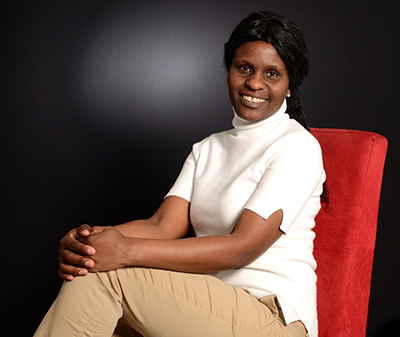
Professor Marcia Mkansi, from the Department of Operations Management in Unisa’s College of Economic and Management Sciences, won first prize in the medical category at the 2020 Gauteng Accelerator Programme (GAP) Innovation competition together with PhD graduate Dr Oluka Nagitta
While the Covid-19 pandemic continues to make headlines, other diseases have not necessarily been eradicated or brought under control. Malaria alone kills hundreds of thousands of Africans every year, the majority of them being children under five. The reason for many of these deaths is sobering: effective medicines exist to prevent and treat malaria but they may be physically out of reach of the people who need them.
The challenge is not a lack of anti-malarial drugs (such as artemisinin-based combination therapies, or ACTs), but lack of access to them. “The problem is a multi-embedded supply chain coordination issue,” says award-winning Unisa inventor Professor Marcia Mkansi from the Department of Operations Management, College of Economic and Management Sciences.
She explains: “Multiple stakeholders are involved in the delivery and distribution of ACTs, including macro stakeholders (such as health departments and the World Health Organization), market stakeholders (suppliers) and micro levels (hospitals and clinics). When there are multiple embedded stakeholders, it is difficult to coordinate the supply chain and to identify understock and overstock issues before the medicine expires.”
According to the World Health Organization (WHO), malaria remains a major public health issue in Sub-Saharan Africa and contributes substantially to child morbidity and mortality. In 2018, the region accounted for 94% of world malaria deaths, of which 67% were children under five.
Logistical rather than medical
Recognising that at least part of the malaria problem is not medical but logistical, Mkansi and PhD graduate Dr Oluka Nagitta are using their supply chain management expertise to bring much-needed visibility to the supply chain for anti-malarials and ACTs.
Their solution is a mobile health app that connects the various stakeholders in the supply chains, enabling them to manage, monitor, and maintain visibility of drugs and view information that is crucial to their medicine delivery and distribution efforts.
“The stakeholders can log in to see who has adequate stock levels, understock and overstock to prevent wastage (expiries) and better manage resources,” Mkansi says. “This improves the efficiency of the supply chain, minimises waste and embeds stock management principles in the process.”
Taking four years of research to the next level
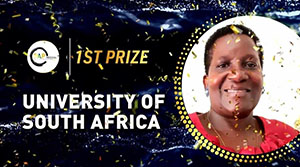
Dr Oluka Nagitta
The development of this mobile health app was based on the findings of four years of scientific research at several hospitals in Uganda – a major malaria hotspot – that Dr Oluka Nagitta conducted for her PhD, which Mkansi supervised. Mkansi then took the next step by lodging an IP disclosure with the Unisa Directorate of Innovation, Technology Transfer and Commercialisation, naming Nagitta and herself as co-inventors.
The app has already won two awards, namely first prize in the medical category of the 2020 Gauteng Accelerator Programme (GAP), and an Innovation Support Programme award from Unisa, intended to assist Unisa staff to conceptualise and develop innovation solutions to societal problems.
These awards have provided the financial means and incubation support to bring the mobile health app to the point where it is now ready to be tested in two areas where malaria is endemic: the Kruger National Park in South Africa and the same Ugandan hospitals where the original four-year PhD research was conducted.
The Ugandan pilot will be undertaken in partnership with the National Malaria Control Programme of the Ministry of Health in Uganda, while the South African pilot project will involve a supplier of anti-malarial products to the Kruger National Park.
Several private investors have expressed interest in the mobile health app, and Mkansi is also exploring opportunities for collaboration with the University of Pretoria’s Sustainable Centre for Malaria Control.
Every problem has a solution
The health app is by no means the first software product Mkansi has devised to address urgent societal problems. She has previously invented a green delivery solution for retailers and a research methods index for university academics. The latter won her joint second place in the 2020 European Conference on Research Methodology for Business and Management Studies.
“Universities are gold mines of solutions and innovations – if we as researchers can take our work a step further than writing articles and making recommendations, a lot of societal problems can be eradicated,” she says. “In every problem, I see an opportunity to do something about it, to translate my knowledge into solutions to real problems. Malaria is a significant issue for Africa and the problems with the supply chain inspired me to use technology and my innovative mindset to do something about it.”
Read also: Unisa innovator wins another big award
* Submitted by the Research Support Directorate
Publish date: 2021-01-28 00:00:00.0


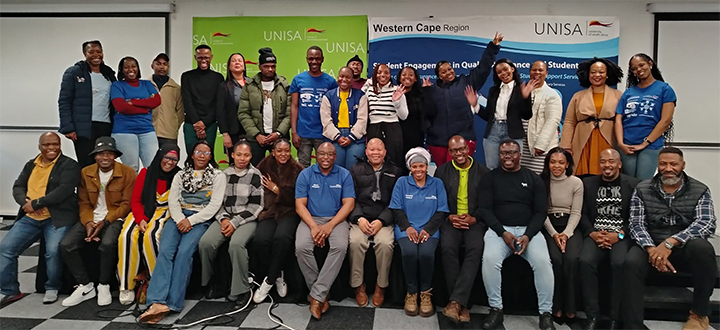 CAS students take centre stage in shaping academic quality and support
CAS students take centre stage in shaping academic quality and support
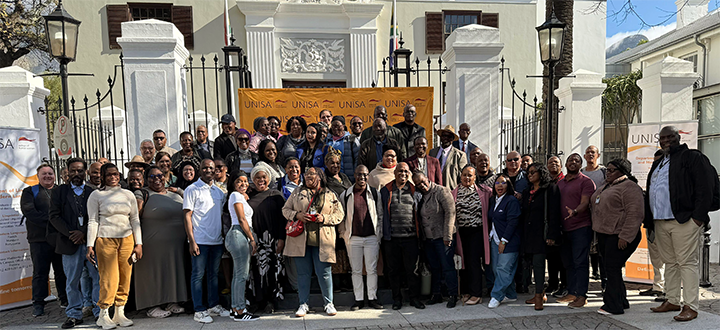 Unisa engaged scholarship project heads to parliament
Unisa engaged scholarship project heads to parliament
 Unisa and ATUPA recognise researchers for ingenuity and innovation
Unisa and ATUPA recognise researchers for ingenuity and innovation
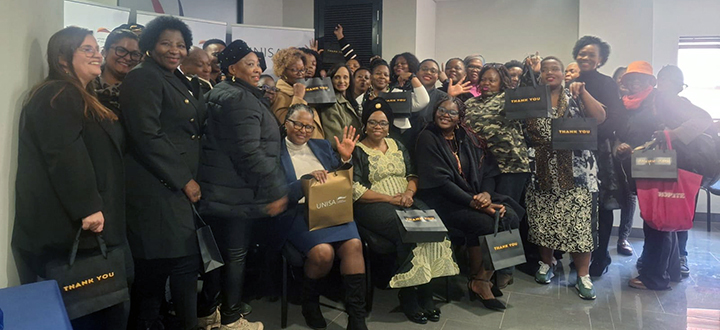 Recognising the unceasing resilience of women
Recognising the unceasing resilience of women
 Unisa and SHECASA promote institutional health and safety
Unisa and SHECASA promote institutional health and safety